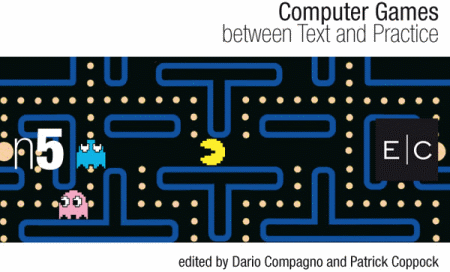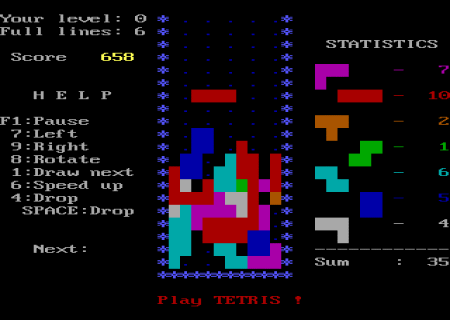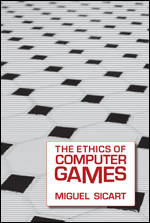
From the Italian Association for the Study of Semiotics, the collection Computer Games between Text and Practice looks at games from, yes, a semiotic perspective!
Cover (pdf, 488 Kb)
Introduction (pdf, 108 Kb)
by Dario Compagno and Patrick Coppock
section one
Playing Games: from Cooperation to Interaction
Gabriele Ferri (pdf, 660 Kb)
Interpretive Cooperation and Procedurality. A Dialogue between Semiotics and Procedural Criticism
Otto Lehto (pdf, 2 Mb)
The Collapse and Reconstitution of the Cinematic Narrative: Interactivity vs Immersion in Game Worlds
section two
Which Role for Narrativity in Computer Games?
Jack Post (pdf, 588 Kb)
Bridging the Narratology – Ludology Divide. The Tetris Case
Alessandro Catania (pdf, 244 Kb)
Les Jeux sont Faits! Immersiveness and Manageability of Game Narratives
section three
Revisiting Enunciation: Embodied Players
Agata Meneghelli(pdf, 620 Kb)
Simulacral and Embodied Enunciation in Computer Games
Adriano D’Aloia (pdf, 768 Kb)
Adamant Bodies. The Avatar-Body and the Problem of Autoempathy
section four
Temporal and Spatial Features of Virtual Environments
Mario Gerosa, Jennifer Grace-Dawson (pdf, 1,0 Mb)
Chronology and Historicization in Virtual Worlds and Video Games
Joaquìn Siabra-Fraile (pdf, 800 Kb)
Manic Miner under the Shadow of the Colossus: A Semiotic Analysis of the Spatial
Dimension in Platform Video Games
Alex Wade (pdf, 472 Kb)
Spatial Typologies of Games
section five
Authorship and Game Creation
Marco Benôit Carbone (pdf, 284 Kb)
The Adam of Videogames. From Invention to Authorship through the Analysis of Primordial Games
Filippo Zanoli(pdf, 505 Kb)
Logos Language in Richard Garriot’s Tabula Rasa: an Analysis of Symbols, Semantics and Textual Implications





